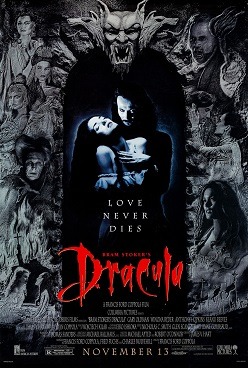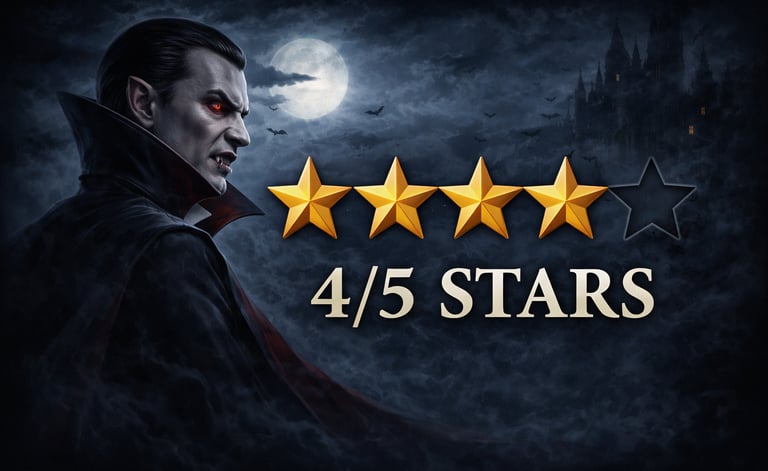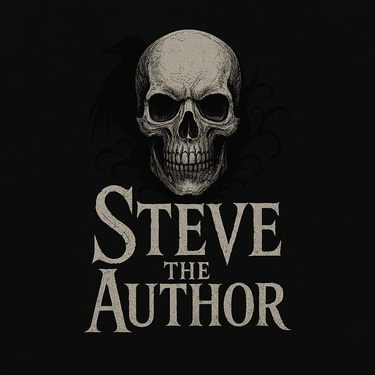Exploring the Dark Realms: Steve's Journey Through Horror and Fantasy
Join Steve the Author as he delves into the captivating worlds of horror and fantasy. Here we will pick a movie or television show and talk about what works with it and why. If its an old movie (spoiler alert, it probably will be) we will discuss if it holds up to time. Discover where I fell in love with horror, fantasy, magic, and the unexpected. Take a walk with me down memory lane, if you dare.
REVIEWS
Steven DeLong
11/1/20253 min read


Rediscovering Bram Stoker’s Dracula (1992): A Gothic Opera That Still Bites
When Bram Stoker’s Dracula hit theaters in 1992, audiences weren’t just watching a horror movie—they were experiencing an ambitious cinematic reimagining of one of literature’s most enduring monsters. Directed by Francis Ford Coppola, this adaptation boldly blends Gothic horror, romantic tragedy, and visual spectacle in a way few vampire films since have managed to replicate.
A Plot Steeped in Passion and Darkness
Unlike many Dracula adaptations that lean more heavily into horror or action, Bram Stoker’s Dracula places emotional drama at its heart. The story begins centuries before Victorian England, introducing a young Vlad the Impaler who returns from war to discover that his beloved wife has taken her own life believing him dead. Devastated, he renounces God and embraces the supernatural curse of vampirism.
Centuries later, in fog-choked London, Dracula becomes obsessed with Mina Murray (Winona Ryder)—a woman whose likeness mirrors his lost love. What unfolds is a tale that mixes seduction and terror, as Dracula moves closer to claiming her soul and a group of brave allies, led by Professor Abraham Van Helsing (Anthony Hopkins), mount a desperate defense.
The result is more than a standard horror story: it’s a tragic love story wrapped in the pageantry of Gothic myth.
Performances That Haunt and Divide
One of the film’s greatest strengths lies in its performances. Gary Oldman delivers a layered, unforgettable portrayal of Count Dracula—infusing the centuries-old vampire with gravitas, sorrow, and seductive menace. Fans and critics alike often cite Oldman’s work as one of the film’s most compelling elements.
Winona Ryder brings a mix of vulnerability and steel to Mina, capturing both the character’s emotional conflict and eerie pull toward Dracula. Anthony Hopkins channels his theatrical intensity into Van Helsing, delivering one of the more memorable iterations of the vampire hunter archetype.
On the other hand, Keanu Reeves’s turn as Jonathan Harker has been a persistent point of debate. While Reeves is a charismatic presence in many genres, many viewers and reviewers have criticized his performance here as wooden, especially in contrast to the more vivid turns by his co-stars. Here's where I sit with Keanu. In ANY role where he is clueless at the beginning of the film, he is going to nail it. He can make you believe the learning curve. He cannot however make you believe he is English. The accent loses the movie a star. Sorry.
Visuals, Style, and Production
If Bram Stoker’s Dracula has one indisputable achievement, it’s in its visual design. From the sumptuous costumes to the sweeping Gothic sets and eerie lighting, Coppola’s film feels like a Victorian nightmare rendered in rich color and texture.
Coppola deliberately eschewed digital effects in favor of practical illusion techniques—an homage to early cinema’s magic tricks and camera craft. This choice gives certain sequences a surreal quality that still stands out in modern horror filmmaking.
Despite its beauty, the film’s opulent presentation is a double-edged sword; some critics argue that its emphasis on spectacle comes at the expense of narrative cohesion and tension.
Reception Then and Now
Upon release, Bram Stoker’s Dracula earned a mixed but generally positive critical reception. On Rotten Tomatoes, the film currently holds an approval rating of 69 %, with critics praising its ambition and performances while acknowledging its excesses.
Audience responses tend to be more favorable, with many viewers embracing the film’s operatic tone and standout performances. On IMDb, it maintains a solid rating around 7.4/10, reflecting a broad appreciation among general audiences.
Why It Still Matters
More than three decades after its debut, Bram Stoker’s Dracula remains an influential adaptation—both revered and critiqued for the same reasons. It dared to reframe Dracula not merely as a monster but as a tragic, romantic figure whose yearning gives the story a haunting emotional stake.
For fans of Gothic cinema and horror history alike, this film stands as a bold, unforgettable entry in the Dracula canon—an “operatic” vampire tale that refuses to simply fade into the night.
Summary: Quick Stats
Rotten Tomatoes Score: 69 % (critics)
IMDb Rating: ~7.4/10
Director: Francis Ford Coppola
Standout Performance: Gary Oldman as Dracula


